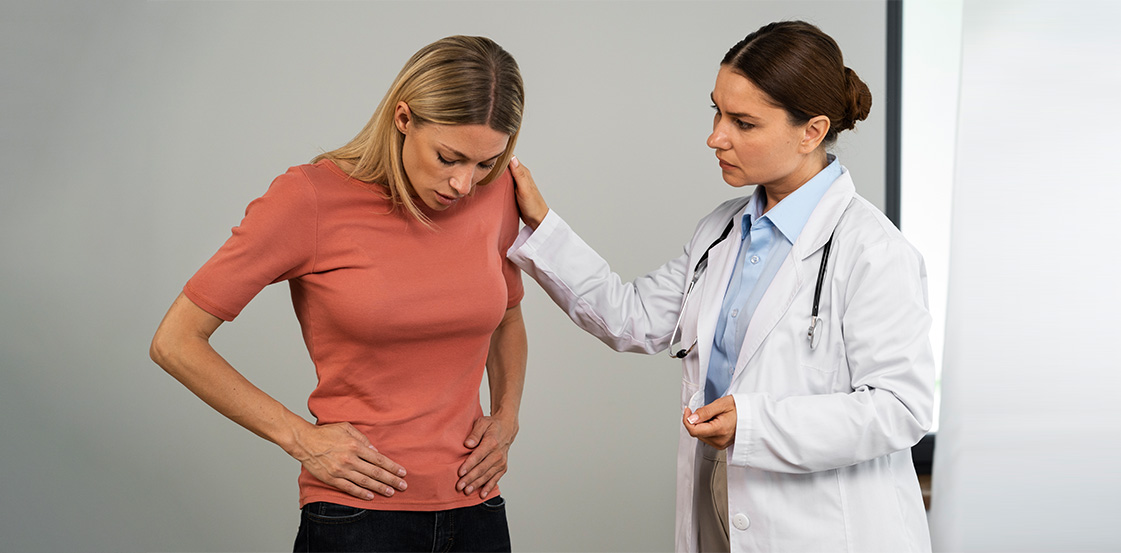Post link copied to clipboard!

Can UTIs cause constipation? If you’ve had a UTI, you might be surprised that it can affect more than just your urinary system. Beyond the burning sensation and frequent urination, Urinary Tract Infections can sometimes lead to bloating and constipation. In this comprehensive guide, we’ll delve into the intriguing connection between urinary tract infections, bloating, and constipation, all while exploring effective treatment options available in London.
Urinary tract infections primarily affect the urinary system, including the bladder, urethra, and kidneys. However, the proximity of the urinary and digestive systems can sometimes lead to an unexpected crossover of symptoms.
When bacteria, most commonly Escherichia coli (E. coli), enter the urinary tract, they can cause inflammation and irritation. This inflammation can affect nearby structures, leading to disturbances in the digestive system.
Bloating is a sensation of fullness or tightness in the abdominal area. Interestingly, UTIs can indirectly contribute to bloating. The inflammatory response triggered by the infection can irritate the tissues around the bladder and pelvic region.
This irritation can extend to the gastrointestinal tract, disrupting its normal functioning and potentially leading to bloating. Moreover, the body’s response to infection (combined with altered fluid balance) can further contribute to this uncomfortable symptom.
Constipation, characterised by infrequent bowel movements and difficulty passing stool, can also be intertwined with Urinary Tract Infections. The inflammatory processes that occur during a UTI can lead to changes in gut motility.
This alteration in the intestine’s movement can slow down the passage of stool, resulting in constipation. Additionally, the discomfort and pain associated with a UTI might indirectly contribute to temporary changes in diet and fluid intake worsening and constipation.
If you find yourself grappling with the discomfort of a UTI, bloating, or constipation in the vibrant city of London, rest assured that there are accessible and reliable treatment options available. Urinary Tract Infections Treatment London is centred around addressing the root cause of the infection while alleviating associated symptoms.
While Urinary Tract Infections (UTIs) have a notorious impact on the urinary system, their influence can extend beyond. Bloating and constipation, although not directly caused by UTIs, can be linked to the inflammatory processes triggered by the infection.
Are you seeking effective UTI treatment in London, a combination of professional medical consultation, pharmacy options, and healthy lifestyle choices can pave the way to a swift recovery. Remember, taking proactive steps to address UTIs promptly can lead to improved comfort and overall well-being.
Q1) Can a urinary tract infection (UTI) really cause bloating and constipation?
Yes, it’s possible. While Urinary Tract infections (UTIs) primarily affect the urinary system, the inflammation they cause can extend to surrounding tissues, including the gastrointestinal tract. It can lead to symptoms such as bloating and constipation.
Q2) How does a UTI lead to bloating and constipation?
The inflammation from Urinary Tract Infections can irritate the bladder and pelvic tissues. It can lead to disruptions in normal digestive function. Further, changes in gut motility due to the infection can slow down the passage of stool, contributing to constipation.
Q3) Are there specific foods or drinks that can worsen bloating and constipation during a UTI?
While there isn’t a one-size-fits-all answer, some individuals might find that certain foods and drinks, such as carbonated beverages, high-fat foods, and caffeine, can exacerbate bloating and constipation during a UTI. Staying hydrated and maintaining a balanced diet with fibre-rich foods can help alleviate these symptoms.
Q4) Can I get over-the-counter treatments for UTIs at pharmacies in London?
Yes, many pharmacies in London offer over-the-counter treatments for Urinary Tract Infections. These might include urinary alkaliser to relieve the burning sensation and urinary analgesics for pain relief. Consult a healthcare professional for proper diagnosis and treatment guidance.
Q5) When should I see a gynaecologist for Urinary Tract Infections-related bloating and constipation?
If you’re experiencing persistent bloating, constipation, and other discomfort alongside a UTI, it’s advisable to consult a gynaecologist. They can provide accurate diagnoses and recommend suitable treatments. Ensure that no underlying issues are contributing to your symptoms.